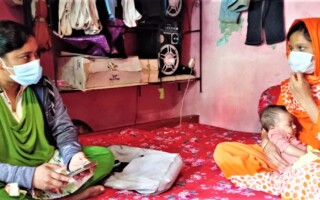
The quality of care (QoC) framework, developed more than two decades ago, is a cornerstone approach to measuring quality in family planning programming, ensuring women’s wants and needs are respected, and improving outcomes. Since the QoC framework was developed, the global community has seen major shifts in family planning policies and programs and a strengthened commitment to achieving universal access to high-quality family planning services. These changes have resulted in the need to update and align methodologies for measuring and monitoring quality of care services to ensure that every woman has access to reproductive and contraceptive information, counseling, and services of her choice.
To create an agreed-upon set of indicators to measure quality that can be applied uniformly across different health systems and social contexts, Council experts also review existing frameworks and rights-based methodologies and tools. A new set of indicators to assess quality across different levels and settings is developed and shared with family planning implementers, programmers, and donors to elicit modifications and ensure alignment with rights-based family planning services for routine monitoring of quality.
Building on these achievements, Council researchers:
- Expand the conceptual framework on QoC to include safe abortion, particularly medical abortion;
- Disseminate and track uptake of the project’s policy and programmatic recommendations by national programs and family planning implementing partners;
- Engage with stakeholders to incorporate QoC within universal health care and other financing mechanisms, including vouchers, conditional and unconditional cash transfers, community-based financing, user fees, and performance-based financing
- Review private sector trends in eliciting consumer feedback—e.g., restaurant and food industries, consumer durables including fashion, as well as the service industry spanning from financial, hotels, to utilities—to identify systems that hold the most promise for delivery of person-centered family planning services in low- and middle-income countries
Under this project, the Council also leads coordination of consortium partners, disseminates learnings on strategies for quality improvement at scale, and ensures that the evidence around quality of care is mainstreamed and integrated across the sexual and reproductive health continuum.




